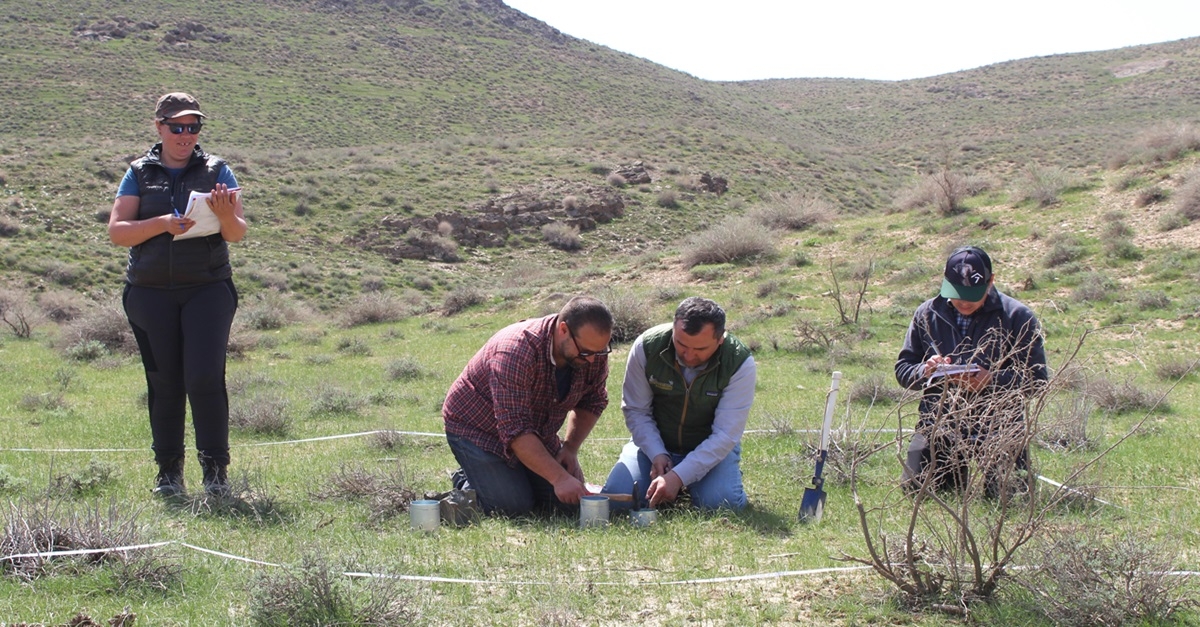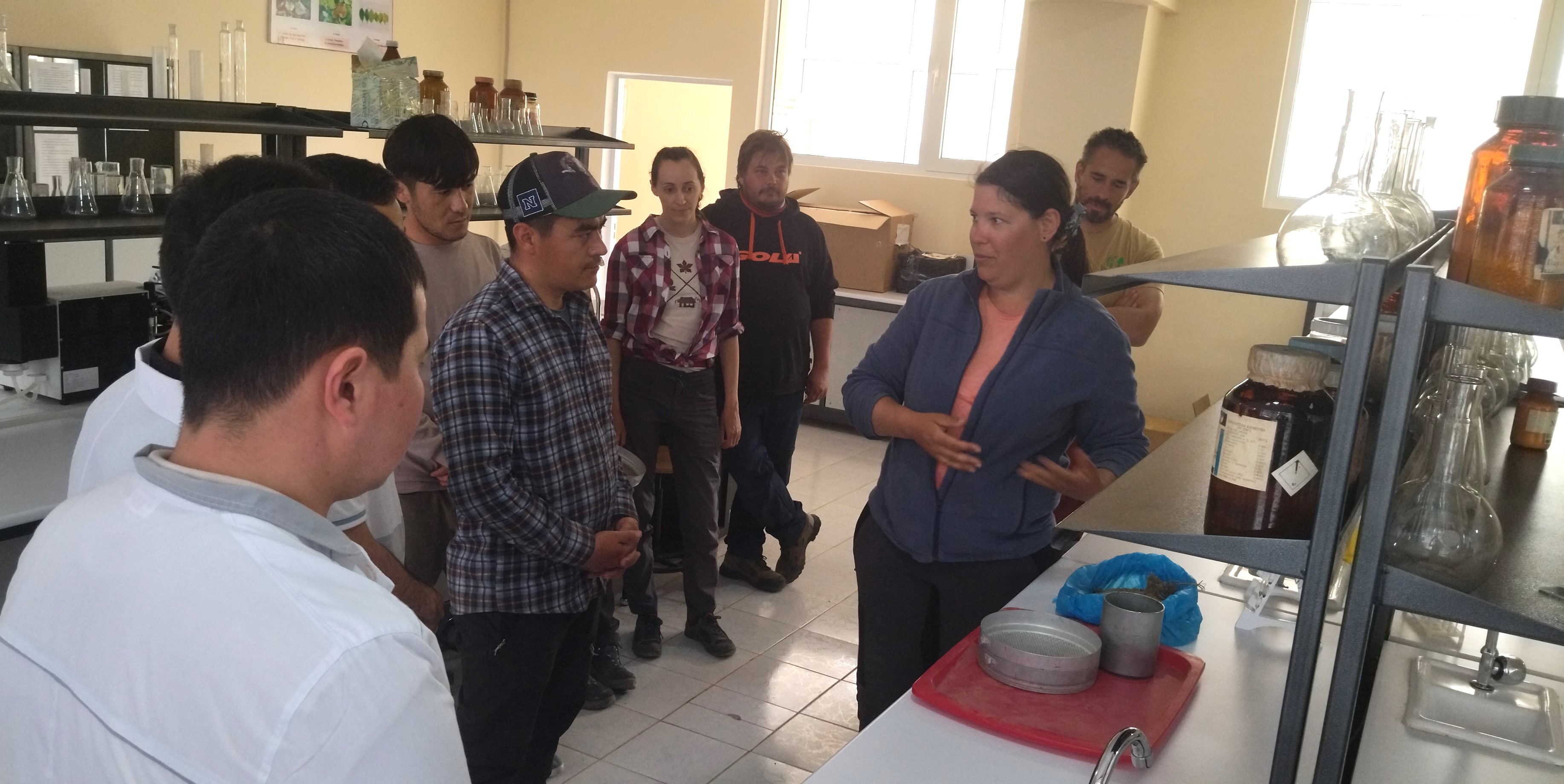The modern research on rangeland restoration has been started at Samarkand State University

As we announced earlier, a group of scientists from the Institute of Botany and Ecology and the University of Szeged of Hungary visited Samarkand State University last week. During the visit, a novel investigation was started among universities, namely new research approaches and methodologies for restoring degraded rangelands of Uzbekistan. In this regard, initial investigations are conducted on soil seed banks to assess the self-regeneration potential of rangelands. Field investigations were conducted for a week in the Kyzylkum desert of Navoi province of Uzbekistan and valuable materials and information were collected.
In this research, Dr Orsolya Deák-Valkó, scientific advisor (full professor), 'Lendület' Seed Ecology Research Group, HUN-REN Centre for Ecological Research and Dr Toshpulot Rajabov – director of the Institute of Agrobiotechnology and Food Safety of SamSU have been leading. In addition, Dr Balázs Deák, scientific advisor (full professor), 'Lendület' Seed Ecology Research Group, HUN-REN Centre for Ecological Research, Dr András Kelemen, research fellow, 'Lendület' Seed Ecology Research Group, HUN-REN Centre for Ecological Research, Dr Réka Kiss, research fellow, 'Lendület' Seed Ecology Research Group, HUN-REN Centre for Ecological Research, Katalin Lukács, junior research fellow, 'Lendület' Seed Ecology Research Group, HUN-REN Centre for Ecological Research, Dr Zoltán Bátori, associate professor, head of the department, University of Szeged, Department of Ecology, Dr Csaba Tölgyesi, research group leader, MTA-SZTE 'Lendület' Applied Ecology Research Group and Abdubakir Kushbokov, PhD student, University of Szeged have participated in the fieldwork.
We remind you that these studies are being carried out as part of the dissertation work of Abdubakir Koshbokov a researcher at SamSU, who is currently studying for a PhD at the University of Szeged, and these studies will be continued for the next 3 years. For reference, the University of Szeged is ranked 2nd in Hungary and 587th in the world.
It should be noted that research aimed at studying the soil seed banks of the rangelands of Uzbekistan has not been carried out before. Considering the large occupations of degraded rangeland areas in our country today, the results of this research provide a great opportunity to develop effective and sustainable methods of rangeland restoration.
Based on field materials collected from the pastures of the Kyzylkum desert, master classes were held in laboratory conditions for the talented students of the Institute of Agrobiotechnology and Food Safety on the extraction of seeds from the soil and the determination of their fertility. There was great interest from the students in carrying out and participating in this new research master class.


